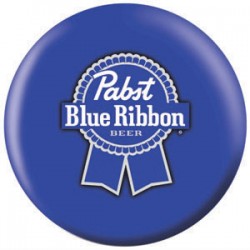 The March 16, 1998 issue of Fortune showed a picture of one Roberto Ziche, a software engineer, and his bird, Reika, a little lime-green and red parrot. Demand for tech talent so outpaced the supply then that his employer had agreed to his demand to let Reika hop about Ziche’s office all day, jumping from his keyboard, across the top of his monitor, and stopping for a rest sometimes on Ziche’s head. “She’s a pleasant diversion,” says Ziche. But there are drawbacks. “When I am on the phone she gets jealous and starts screaming and biting and messing up everything on my desk.” And of course, unlike a dog, the bird was not house trained, so messing up on the desk meant more than mixing up the papers.
The March 16, 1998 issue of Fortune showed a picture of one Roberto Ziche, a software engineer, and his bird, Reika, a little lime-green and red parrot. Demand for tech talent so outpaced the supply then that his employer had agreed to his demand to let Reika hop about Ziche’s office all day, jumping from his keyboard, across the top of his monitor, and stopping for a rest sometimes on Ziche’s head. “She’s a pleasant diversion,” says Ziche. But there are drawbacks. “When I am on the phone she gets jealous and starts screaming and biting and messing up everything on my desk.” And of course, unlike a dog, the bird was not house trained, so messing up on the desk meant more than mixing up the papers.
Nerds in Paradise
Well, if that story seems quaint, your next tech hire may be demanding she bring her pet to work too. Think that’s unlikely? Well think again.
Unemployment among many categories of workers tech is at or lower than 1998. The Boston Globe reports that in Massachusetts recruiters are seeing 3-5 jobs for every software worker. Workers with the right skills are being snatched up in as little as 24 hours. Contract developers are turning down offers of $130 per hour.
And the Bay State is no isolated example. The New York Times reports that while the rest of the city anxiously watches unemployment hover just below a demoralizing 9 percent and Wall Street braces for more layoffs, developers are complaining about being called with too many job offers. The shortage is causing salaries to skyrocket across all levels of jobs. Nationwide salaries for software engineers rose 20 to 30 percent in the past year and a half.
Employers are resorting to all sorts of creative strategies to attract and keep talent. Netlix offers employees unlimited time off under a program called “freedom and responsibility.”
This Time Is Different
Back in the 90s the talent shortage seemed to be a smaller problem — something that would not last, and was mainly in tech. This time the problem is more deep-seated and enduring. A recent survey by Manpower of employers found that just 27% believe their business has the talent it needs. Underscoring that gloomy assessment is a report from the World Economic forum that estimates significant shortages of talent in most major categories of professional jobs — tech, healthcare, education, biotech, etc. — through 2020.
A key reason the problem is bigger is because the supply of talent is just not there. Less than 1% of college students in the U.S. pick computer science as a major. The American Association of Colleges of Nursing estimates that the combined output of all nursing programs in America is 30% less than the demand. Shortfalls in talent that were made up by immigrants are no longer possible because the number of H-1B visas available has been stuck at 65,000 since 2007, and in the current political climate no politician on either side has the courage to push for an increase.
Weird and Weirder
Employers are getting increasingly desperate in their attempts to recruit talent. Among the more unusual approaches include having a wine bar at DPR Construction. All 17 of the company’s offices offer employees the option to open a bottle to toast accomplishments and at the Texas branch they have a full saloon. Chesapeake Energy offers employees botox injections and tanning beds. Taking a cue from Roberto Ziche, Kimpton hotels allows employees to bring pets to work and offers veterinary health benefits. But the prize for most unusual recruitment idea goes to Hipster, a San Francisco startup that gives each new employee a year’s supply of Pabst Blue Ribbon. There’s no accounting for taste.